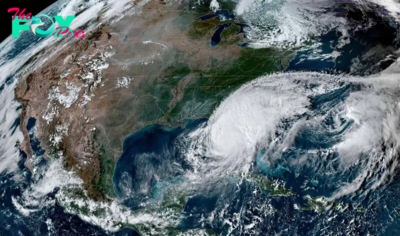Science
Gargantuan waves in Earth's mantle may make continents rise, new study finds
High plateaus rise in the interior of continents thanks to churning deep inside Earth hundreds of miles from where they eventually spring up, new research suggests.
As continents break up, massive cliff walls may rise near the boundaries where the crust is pulling apart. That breakup sets off a wave in Earth's middle layer, the mantle, that slowly rolls inward over tens of millions of years, fueling the rise of plateaus, the new study found.
Related: Fountains of diamonds that erupt from Earth's center are revealing the lost history of supercontinents
Scientists have long known that continental rifts triggered the rise of massive escarpments, like the cliff walls that separate the East African Rift Valley from the Ethiopian plateau, said lead author Thomas Gernon, a geoscientist at the University of Southampton in the U.K. And these steep cliffs sometimes fringe inland plateaus that rise from the strong, stable cores of continents, known as cratons.
But because these two landscape features usually form tens of millions to up to 100 million years apart, many scientists thought the different formations were driven by different processes, Gernon told Live Science in an email.
In the new study, published Aug. 7 in the journal Nature, Gernon and colleagues studied three iconic coastal escarpments that formed during the breakup of Earth's last supercontinent, Gondwana. One, along India's coast, fringes the Western Ghats for about 1,200 miles (2,000 kilometers); another, in Brazil, rings the Highland plateau for about 1,900 miles (3,000 km); and the Great Escarpment of South Africa encircles the Central Plateau and spans a staggering 3,700 miles (6,000 km), according to the study. The interior plateaus in these regions can rise a kilometer or more, Gernon said.
The team used topographic maps to show the escarpments aligned with the continental boundaries, which suggested that rifting created them. Computer simulations showed that the continental rifts disturb the mantle, triggering deep waves that roll inward toward the continent's heart.
-

 Science15h ago
Science15h agoWhy Risky Wildfire Zones Have Been Increasing Around the World
-

 Science20h ago
Science20h agoIt’s Time to Redefine What a Megafire Is in the Climate Change Era
-

 Science2d ago
Science2d ago4 Astronauts Return to Earth After Being Delayed by Boeing’s Capsule Trouble and Hurricane Milton
-

 Science2d ago
Science2d agoThe Elegance and Awkwardness of NASA’s New Moon Suit, Designed by Axiom and Prada
-

 Science1w ago
Science1w agoSpaceX Launches Its Mega Starship Rocket. This Time, Mechanical Arms Catch It at Landing
-

 Science3w ago
Science3w agoYou Won’t Want to Miss October’s Rare Comet Sighting. Here’s How and When You Can See It
-

 Science1m ago
Science1m agoA New Spacecraft Could Help Determine if There’s Life on a Moon of Jupiter
-

 Science1m ago
Science1m agoWe Can Thank Deep-Space Asteroids for Helping Start Life on Earth



























